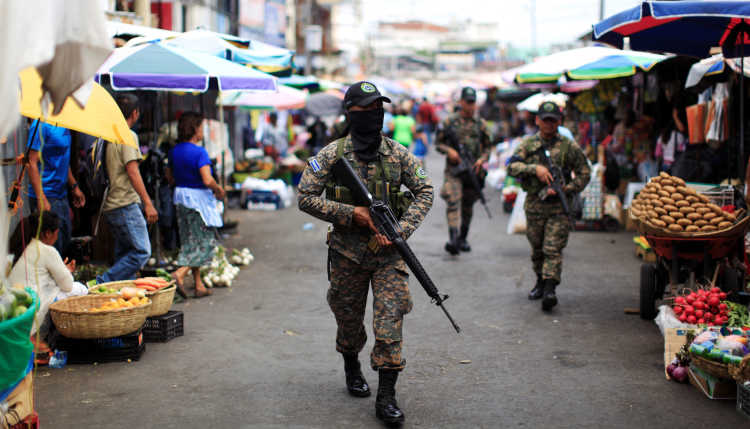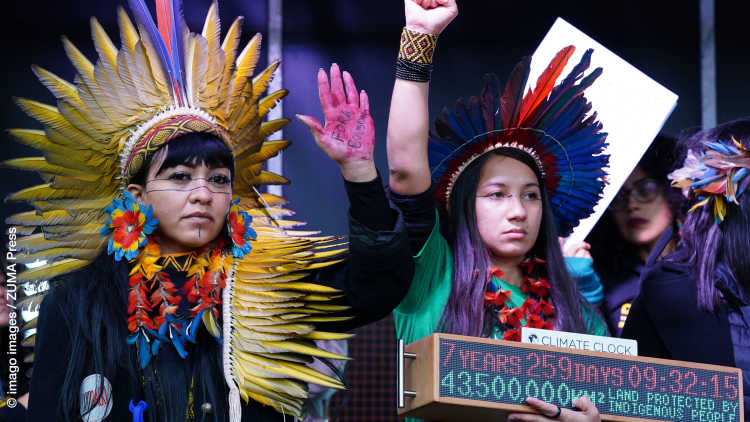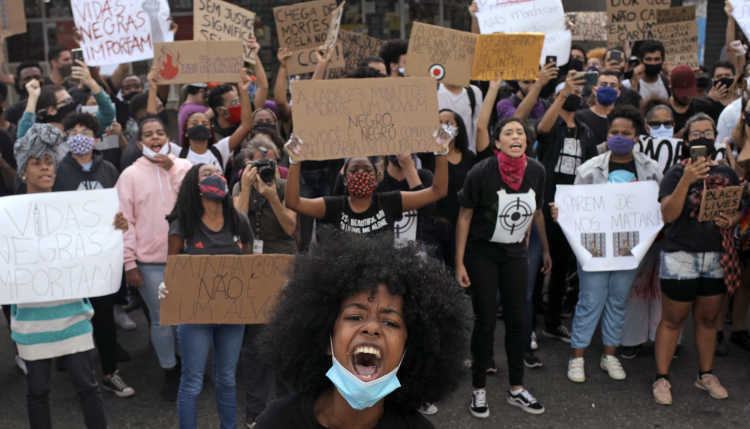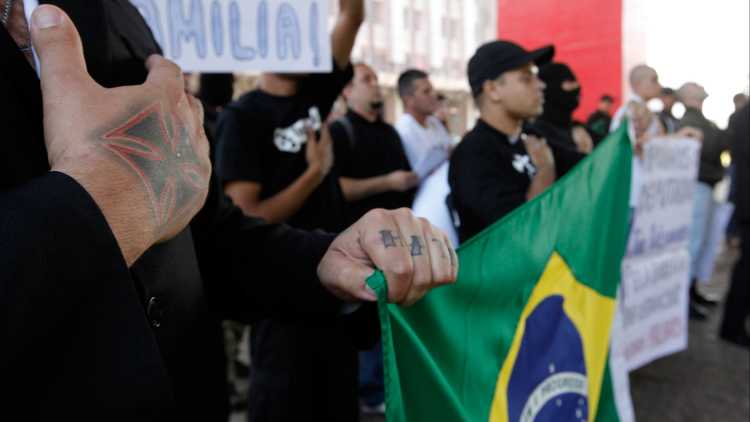GIGA Insights | 11/09/2025
Bolsonaro on Trial: A Test Case for Global Democratic Resilience
The trial of Brazil’s former president Jair Bolsonaro, which took place in September 2025, marks a historic moment: for the first time in the nation’s history, a former head of state has been prosecuted and convicted for attempting a coup – an extraordinary development in a country long marked by military interventions.
12 September 2025
The prosecution accused Bolsonaro and seven other individuals – including several former generals and cabinet members – of seeking to violently dismantle Brazil’s democratic rule of law. Alexandre de Moraes, Justice of the Supreme Federal Court, stated that Bolsonaro aimed to establish a “dictatorship” in Brazil. The verdict was announced on 11 September. A majority of 4 judges voted for conviction versus 1 against.
Prof. Dr. Mariana Llanos, GIGA expert on democratic institutions and presidential crises, is closely following proceedings. In this interview, she explains why the trial is so significant and what other democracies can learn from this case.
Mariana, why is this trial so pivotal for Brazil?
Mariana Llanos:
We all remember far-right ex-president Bolsonaro (2019 –2022) for putting Brazilians at risk with policies (or lack thereof) that endangered the Amazon’s biodiversity and denied the threat of the COVID-19 pandemic. That wasn’t all.
He also became notorious for undermining democratic institutions, casting doubt on Brazil’s reliable electronic-voting system, and rejecting the unfavourable results of the 2022 elections as he sought to retain the presidency. We still have in mind those pictures of 8 January 2023, just one week after winning candidate Luiz Inácio Lula da Silva had taken office, when thousands of Bolsonaro supporters stormed Brazil’s Congress, Supreme Court, and the Palácio do Planalto (seat of government) in Brasília. They not only destroyed those precious buildings but called for a military coup to oust Lula and reinstate Bolsonaro. A complex plot was revealed following investigations by the police and the public prosecutors, which provided the basis for the trial, in which a panel of 5 justices from the 11-member Supreme Federal Tribunal charged Bolsonaro and 7 close associates (including high-ranking military officers and collaborators in his government) with grave offences: leading a criminal organisation; attempting to violently abolish democratic rule; plotting a coup; causing damage to public property; and conspiring to assassinate key democratic figures, such as President Lula and Justice Moraes.
What happened in 2022 and at the beginning of 2023 was a serious attack on democracy and the Constitution!
Bolsonaro denied all allegations, claiming to be the victim of political persecution. He accused the judiciary of bias and abuse of power. How credible are these accusations?
Llanos: For Bolsonaro and his supporters, this is a political trial, and they maintain that judges are biased against him. But Bolsonaro’s attacks on the Federal Supreme Tribunal began much earlier, during his time in government, and took place both informally (such as with rallies against the court) and formally (such as with impeachment requests against some of the judges). Bolsonaristas particularly dislike Moraes, who headed the Superior Electoral Court during the 2022 elections and strongly pushed back against Bolsonaro’s claims of electoral fraud. This judge also took a firm stance after the events of 8 January. In 2024, he even ordered the temporary suspension of the network X’s operations in Brazil in the middle of investigations on far-right disinformation campaigns.
So, Bolsonaristas do not like the court and openly attack it. Certainly, the firm actions of Justice Moraes are not without controversy: some specialists have seen them as overreach by the judiciary, and even as a provocation inciting further agitation from far-right movements. However, Brazil has long been known for its strong judicial and prosecutorial institutions as well as for the independence of its courts. We cannot talk of political persecution, particularly when the witnessed attempts to undermine democracy were so brazen and overwhelming.
The five-member panel voted with a clear majority of 4 for and 1 against as regards the charges. The only justice finding in favour of Bolsonaro was Luiz Fux, who in dissenting explicitly distanced himself from Justice Moraes and questioned the court’s competence in this case.
Is there a risk of unrest due to the verdict?
Llanos: Of course, the country’s right-wing movements won’t stay quiet in light of this decision. They have formal power in Congress (already signalling that an amnesty law could be a possibility, although this is unlikely in the current context), and they have reasonable control of the streets, as seen last Sunday when rallies took place in the major Brazilian cities to protest Bolsonaro’s innocence.
Bolsonaro received support from US President Donald Trump even before the trial began. How and why is Trump backing him?
Llanos: Loyalties and backing are clear in this case. Donald Trump is an ideological ally of Bolsonaro. He has qualified the trial as a “witch hunt.” The whole country has been facing retaliation from the US due to it going ahead – a 50 per cent tariff has been imposed on Brazilian imports. Trump has also attacked and sanctioned Moraes using the Magnitsky Act to freeze any US-based assets and block financial dealings. The US also revoked Moraes’s visa. Eduardo Bolsonaro, one of the ex-president’s sons, temporarily relocated to the US and has actively lobbied for these actions.
President Lula has repeatedly asserted that the judiciary is independent in Brazil, whether from internal or external interference. Such a stance could be expected from Bolsonaro’s political and ideological adversary. Yet, interestingly, even the country’s right-wing politicians – those ideologically closer to Bolsonaro – did not question the 2022 electoral results and distanced themselves from the violent events of January 2023.
In what ways could this trial serve as a model for other democracies to resist different forms of democratic erosion?
Llanos: Take the US case, a similar one with the Capitol attack of 6 January, one year before the riots incited by Bolsonaro. As with the latter, Trump also refused to accept electoral defeat. For these actions, he was accused and impeached by the House of Representatives but later acquitted by the Senate. Trump’s Republican Party blocked such accountability and even permitted him to run for president in 2024, despite proven undemocratic behaviour. Trump was, as such, able to stand for re-election and eventually return to power despite his attempted impeachment (twice), multiple criminal charges, and a felony conviction.
Brazil’s judicial institutions, in contrast, just put Bolsonaro and his fellow collaborators behind bars, showing that independent courts and political actors’ commitment to democratic values are crucial for resisting authoritarianism. We need firmness and resoluteness when democracy is at risk. Unfortunately, more and more non-democratic actors are reaching office via the ballot box, a troubling hallmark of processes of democratic erosion today. Not all institutions succeed in withstanding the anti-democratic assaults of these powerful actors. The Brazilian case, however, provides a compelling example of how resistance is indeed possible – and the mechanisms through which it can be achieved.
Expert
Interview: Lisa Sänger




































